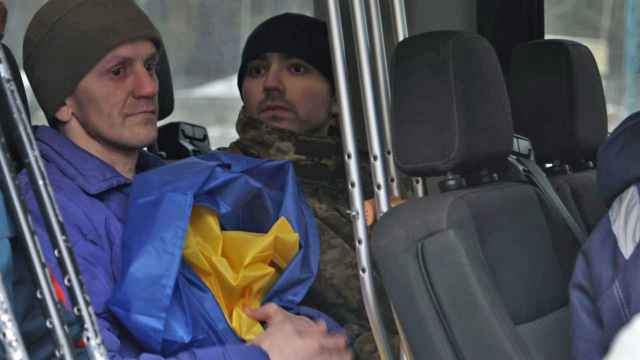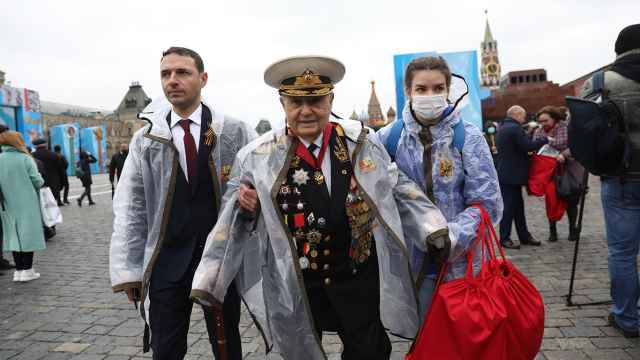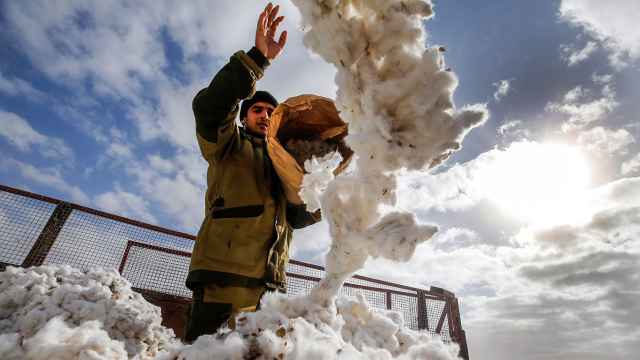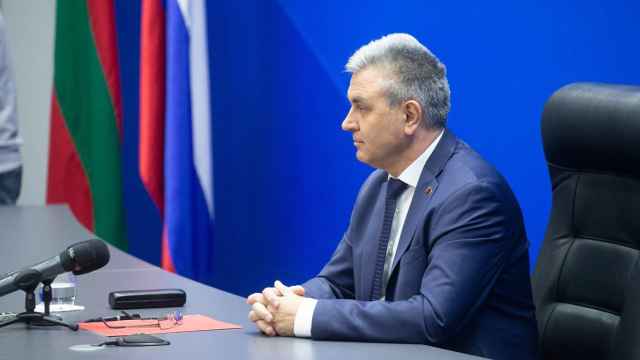The sole member of anti-Kremlin punk group Pussy Riot to be freed on appeal has taken her case to the European Court of Human Rights, she and her lawyer said Friday, accusing Russia of violating her right to freedom of speech and illegally detaining her.
Yekaterina Samutsevich, 30, was one of three band members sentenced to two years in jail in August for belting out a profanity-laced song against President Vladimir Putin in a cathedral in a case that sparked an international outcry.
Her jail term was converted to a suspended sentence, and Samutsevich was freed on appeal on Oct. 10 after six months behind bars after her lawyer successfully argued she had not actually taken part in the protest because she had been stopped and led away before it took place.
The lawyer, Irina Khrunova, said Samutsevich’s rights had been violated during six months of pretrial detention as she was left without food for hours and deprived of sleep.
“The violations were very serious and very evident,” Samutsevich said in an interview Friday. “I don’t like the fact that they did not acquit me and the other girls … and I want to challenge that before the European court. Sadly the Russian courts have not shown objectivity or fairness.”
Samutsevich said last week that Pussy Riot had “achieved more than [its] goal” by igniting debate about the close ties between the Russian state and the Orthodox Church, whose spiritual leader has likened Putin’s rule to “a miracle of God.”
She also said the trial had been an ordeal. She and her fellow band members were roused in their cells daily at 5 a.m. after returning to jail at 1 a.m. the same day. “It was constant stress, constantly being under guard, handcuffed,” she said in the interview.
The two other band members — Maria Alyokhina, 24, and Nadezhda Tolokonnikova, 22 — remain in jail after a Moscow court upheld their prison sentences, a ruling Putin said they deserved.
The trio was found guilty of hooliganism motivated by religious hatred after performing a song on the altar of Moscow’s Christ the Savior Cathedral in February asking the Virgin Mary to “cast Putin out.”
The protest prompted accusations of blasphemy from the Orthodox Church and acerbic criticism from Putin but sparked an outcry from Western governments and pop stars, including Madonna, who condemned the sentences as disproportionate.
Related articles:
A Message from The Moscow Times:
Dear readers,
We are facing unprecedented challenges. Russia's Prosecutor General's Office has designated The Moscow Times as an "undesirable" organization, criminalizing our work and putting our staff at risk of prosecution. This follows our earlier unjust labeling as a "foreign agent."
These actions are direct attempts to silence independent journalism in Russia. The authorities claim our work "discredits the decisions of the Russian leadership." We see things differently: we strive to provide accurate, unbiased reporting on Russia.
We, the journalists of The Moscow Times, refuse to be silenced. But to continue our work, we need your help.
Your support, no matter how small, makes a world of difference. If you can, please support us monthly starting from just $2. It's quick to set up, and every contribution makes a significant impact.
By supporting The Moscow Times, you're defending open, independent journalism in the face of repression. Thank you for standing with us.
Remind me later.





